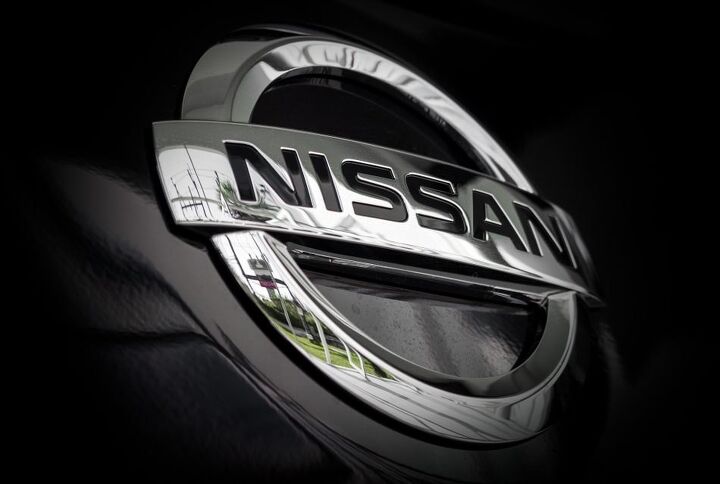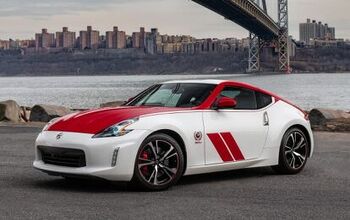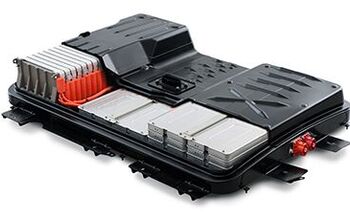Nissan's Management Problem

On Tuesday, a subset of Nissan’s board intends to request access to a list of 80 Nissan employees suspected of aiding former Chairman Carlos Ghosn in his alleged financial malfeasance. Assembled by Nissan’s former audit chief, Christina Murray, and company, the document compiles actions taken by staffers believed to have assisted Ghosn directly or attempted to impede the resulting investigations.
Among them is Hari Nada, Nissan’s vice president, who oversees the company’s legal department. Despite being instrumental in Ghosn’s November arrest by acting as a whistleblower to Japanese authorities, along with Toshiaki Onuma, his role as one of the ousted executive’s many confidants has placed him under suspicion — as did his reluctance to recuse himself from the company’s legal affairs.
Nada is now being pressured to resign. However, it’s not clear if this is the result of any actual wrongdoing or an internal power struggle happening inside the Renault-Nissan-Mitsubishi Alliance. Considering the power vacuum created by Ghosn’s arrest and the swift retirement of ex-CEO Hiroto Saikawa (who also makes the 80-person list), both scenarios seem equally plausible.
According to Bloomberg, Nada was recently implicated in a scandal involving excess stock-linked compensation — an issue that also led to Saikawa’s resignation in September.
The Wall Street Journal had more on how Murray’s report played into this and the ongoing management tussle:
Most of the directors at Nissan are relatively new to the job, having joined after the company’s annual meeting in June. The tensions over the list and Mr. Nada’s role reflect a broader power struggle between some of Nissan’s top management — largely holdovers from the Ghosn era — and the board over the company’s direction.
At the monthly board meeting in September, directors were briefed on the results of Nissan’s nearly yearlong investigation into alleged wrongdoing by Mr. Ghosn. The directors initially were given a five-page overview of the findings, instead of the full 170-page report, although they got it a few days later, said people involved in the discussions.
The full report deals mainly with allegations about Mr. Ghosn and his former aide, Greg Kelly, according to people who have seen it. When some board members asked about the lack of details on possible wrongdoing by others, they were told about Ms. Murray’s list, said people who attended the meeting.
Board members then asked to see Ms. Murray’s list, which ranks people over the severity of their actions on a scale of 0 to 5 and gives Mr. Nada a 5, according to people who have seen it. It hasn’t been shared with the full board, said the people familiar with the board’s thinking.
The longtime Nissan employee is believed to be closely involved with many aspects of the chairman’s compensation, serving as one of three administrators at Zi-A Capital BV — the Dutch subsidiary of Nissan created by Kelly that purchased a house for Ghosn in Beirut using the allegedly ill-gotten finances. Nada is also said to have been aware of documents proposing payments totaling $80 million be made to Ghosn after his retirement.
While his status as a whistleblower was supposed to save him from the law, it doesn’t guarantee he’ll have a place to work. If Nissan’s board presses for his resignation, which seems to be the case, Renault is expected to follow suit. But nobody at the company has accused him of doing anything illegal. Instead, the board is focusing on how his involvement in Ghosn’s previous dealings may have created morale and trusts issues within the automaker — likely doing the same with other employees named in the list.
“We have to decide on clear methods to stop this,” one of the directors told The Wall Street Journal. “We may need to change the people in charge quickly. Whether we can remains to be seen.”
While Tuesday’s meaning is primarily intended to help Nissan decide its next CEO before the end of this month, Murray’s list and Nada’s forced retirement are bound to come up. Meanwhile, Ghosn and Kelly continue to profess their innocence by claiming this is all a management coup staged to make them look like criminals.
We can’t possibly claim to know whether or not Ghosn is innocent. But his claims that there’s a management war happening inside Nissan more valid than ever before.
[Image: Memory Stockphoto/Shutterstock]

A staunch consumer advocate tracking industry trends and regulation. Before joining TTAC, Matt spent a decade working for marketing and research firms based in NYC. Clients included several of the world’s largest automakers, global tire brands, and aftermarket part suppliers. Dissatisfied with the corporate world and resentful of having to wear suits everyday, he pivoted to writing about cars. Since then, that man has become an ardent supporter of the right-to-repair movement, been interviewed on the auto industry by national radio broadcasts, driven more rental cars than anyone ever should, participated in amateur rallying events, and received the requisite minimum training as sanctioned by the SCCA. Handy with a wrench, Matt grew up surrounded by Detroit auto workers and managed to get a pizza delivery job before he was legally eligible. He later found himself driving box trucks through Manhattan, guaranteeing future sympathy for actual truckers. He continues to conduct research pertaining to the automotive sector as an independent contractor and has since moved back to his native Michigan, closer to where the cars are born. A contrarian, Matt claims to prefer understeer — stating that front and all-wheel drive vehicles cater best to his driving style.
More by Matt Posky
Latest Car Reviews
Read moreLatest Product Reviews
Read moreRecent Comments
- W Conrad I'm not afraid of them, but they aren't needed for everyone or everywhere. Long haul and highway driving sure, but in the city, nope.
- Jalop1991 In a manner similar to PHEV being the correct answer, I declare RPVs to be the correct answer here.We're doing it with certain aircraft; why not with cars on the ground, using hardware and tools like Telsa's "FSD" or GM's "SuperCruise" as the base?Take the local Uber driver out of the car, and put him in a professional centralized environment from where he drives me around. The system and the individual car can have awareness as well as gates, but he's responsible for the driving.Put the tech into my car, and let me buy it as needed. I need someone else to drive me home; hit the button and voila, I've hired a driver for the moment. I don't want to drive 11 hours to my vacation spot; hire the remote pilot for that. When I get there, I have my car and he's still at his normal location, piloting cars for other people.The system would allow for driver rest period, like what's required for truckers, so I might end up with multiple people driving me to the coast. I don't care. And they don't have to be physically with me, therefore they can be way cheaper.Charge taxi-type per-mile rates. For long drives, offer per-trip rates. Offer subscriptions, including miles/hours. Whatever.(And for grins, dress the remote pilots all as Johnnie.)Start this out with big rigs. Take the trucker away from the long haul driving, and let him be there for emergencies and the short haul parts of the trip.And in a manner similar to PHEVs being discredited, I fully expect to be razzed for this brilliant idea (not unlike how Alan Kay wasn't recognized until many many years later for his Dynabook vision).
- B-BodyBuick84 Not afraid of AV's as I highly doubt they will ever be %100 viable for our roads. Stop-and-go downtown city or rush hour highway traffic? I can see that, but otherwise there's simply too many variables. Bad weather conditions, faded road lines or markings, reflective surfaces with glare, etc. There's also the issue of cultural norms. About a decade ago there was actually an online test called 'The Morality Machine' one could do online where you were in control of an AV and choose what action to take when a crash was inevitable. I think something like 2.5 million people across the world participated? For example, do you hit and most likely kill the elderly couple strolling across the crosswalk or crash the vehicle into a cement barrier and almost certainly cause the death of the vehicle occupants? What if it's a parent and child? In N. America 98% of people choose to hit the elderly couple and save themselves while in Asia, the exact opposite happened where 98% choose to hit the parent and child. Why? Cultural differences. Asia puts a lot of emphasis on respecting their elderly while N. America has a culture of 'save/ protect the children'. Are these AV's going to respect that culture? Is a VW Jetta or Buick Envision AV going to have different programming depending on whether it's sold in Canada or Taiwan? how's that going to effect legislation and legal battles when a crash inevitibly does happen? These are the true barriers to mass AV adoption, and in the 10 years since that test came out, there has been zero answers or progress on this matter. So no, I'm not afraid of AV's simply because with the exception of a few specific situations, most avenues are going to prove to be a dead-end for automakers.
- Mike Bradley Autonomous cars were developed in Silicon Valley. For new products there, the standard business plan is to put a barely-functioning product on the market right away and wait for the early-adopter customers to find the flaws. That's exactly what's happened. Detroit's plan is pretty much the opposite, but Detroit isn't developing this product. That's why dealers, for instance, haven't been trained in the cars.
- Dartman https://apnews.com/article/artificial-intelligence-fighter-jets-air-force-6a1100c96a73ca9b7f41cbd6a2753fdaAutonomous/Ai is here now. The question is implementation and acceptance.


































Comments
Join the conversation
Jeez, starting to look like the Soviet Great Purge up there. Nobody is safe.
Good job. This is precisely the kind of teamwork Nissan needs at a time when profits are soaring and sales are through the roof. Oh, wait...